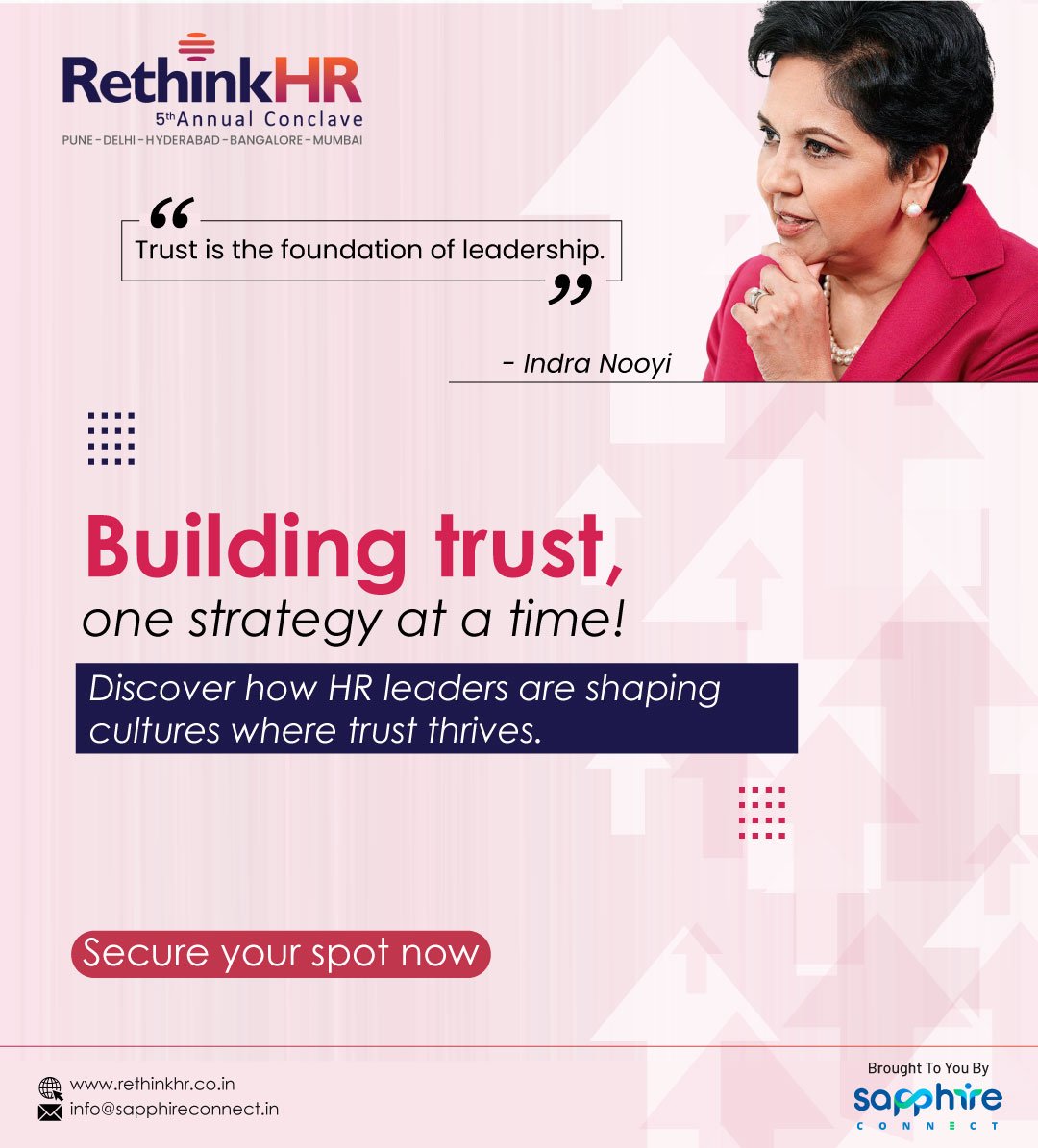Welcome on board as we set out on a fascinating journey to investigate the act of creating trust within organizations. Trust is the cornerstone of effective leadership and employee engagement in today’s dynamic workplace. As HR leaders, you have tremendous power over the culture of your company, and building trust is essential to its success. Let’s dive into this blog, which will reveal best practices and tactics for HR managers to foster a culture of trust.
Lead by Example to build a Culture of Trust
Together, we can build trust throughout our teams by taking the initiative as HR executives and setting an example. It is imperative that we exhibit integrity, transparency, and consistency in our communication and behavior, and that we exemplify trustworthiness in every action and choice we make. We may encourage trust and credibility among our team members by establishing a positive tone at the top. Take a cue from Patagonia CEO Rose Marcario. Marcario is well-known for her steadfast dedication to openness and moral business conduct. She regularly converses with staff members and distributes corporate performance data in an honest manner. She has set a strong example for HR directors worldwide by fostering a culture of trust and responsibility via her leadership.
Foster Open Communication
Let’s foster an atmosphere where candid dialogue is encouraged. Staff members should feel free to express their opinions, worries, and ideas. It is imperative for HR directors to engage employees in decision-making processes. They should actively listen to their feedback and swiftly resolve any concerns they may have. Open communication between leaders and their teams not only increases trust but also fortifies the relationship. The online store Zappos, renowned for its outstanding work environment, is the only place to look. Through the company’s “Ask Anything” sessions, CEO Tony Hsieh of Zappos promotes candid communication. By giving staff members a chance to ask Hsieh questions directly, these frequent Q&A meetings promote openness and trust throughout the company.
Prioritize Employee Well-being for a Culture of Trust
There must be top priority given to programmes that emphasize work-life balance and employee well-being. It is critical that we demonstrate sincere concern and support for the physical, mental, and emotional well-being of our staff. We show our dedication to their general well-being by providing flexible work schedules, wellness initiatives, and mental health resources, and we gain their trust and loyalty in return. Consider Google as an example, a business known for emphasizing the welfare of its employees. Google offers a range of well-being programmes, including exercise centers, mindfulness courses, and on-site medical services. These programmes not only improve worker wellbeing but also foster a supportive and dependable work environment. Additionally, they enhance employee satisfaction and boost overall productivity, ultimately leading to greater organizational success.
Recognize and Reward Trustworthy Behavior
Encouraging and praising reliable conduct from staff members is essential to reiterating the value of trust in our company. We actively foster a culture where trust grows and thrives by recognizing integrity, teamwork, and ethical behavior. One well-known cloud software firm that demonstrates this approach is Salesforce, which has been recognised with the “Culture of Trust” award. This award recognises staff members who best represent the company’s guiding principles of openness, trust, and client success. Salesforce upholds the notion of trust in its corporate culture by openly recognizing and rewarding those that live up to these ideals, encouraging others to do the same. Let us persist in promoting trust inside our own establishment, duly acknowledging and commemorating those who bolster its development and expansion.
Conclusion
HR directors may create a work environment where trust is strong by setting a good example, encouraging candid communication, giving employees’ well-being a priority, and praising reliable behavior. Setting a good example is crucial. It is imperative for HR leaders to exhibit honesty, openness, and coherence in our deeds and choices. Our actions establish the tone for the entire company and have an impact on how people view and use trust. Establishing open lines of communication is crucial to fostering trust. Fostering open communication, paying attention to employee input, and including staff members in decision-making procedures promotes transparency and improves the relationship between managers and their teams. Let’s work together to create environments where success is based on trust.

